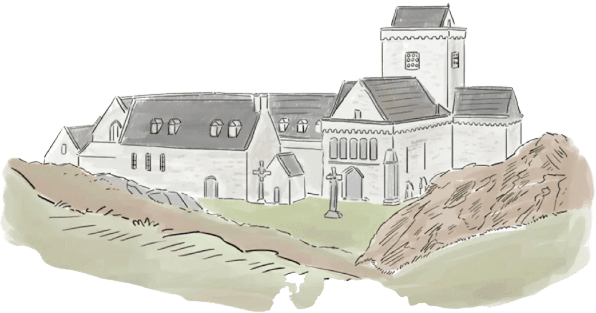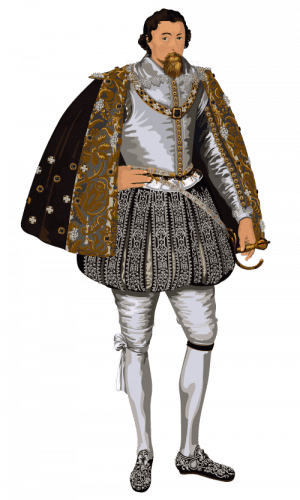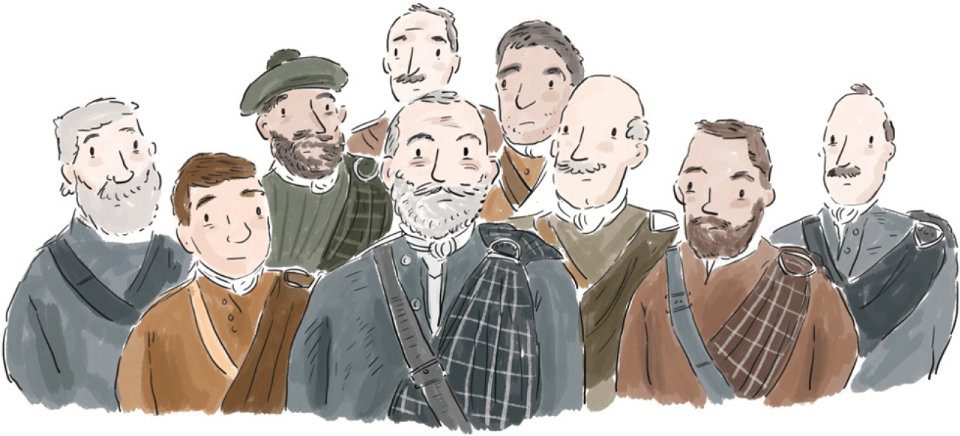The Statutes of Iona

The Band and Statutes of Icolmkill (the Statutes of Iona)
Some people think that the Statutes of Iona – there were nine altogether – were an attack on parts of the Highland culture; that they were to wipe out Gaelic and replace it with English.
Others think that, through the statutes, King James VI of Scotland was trying to unite the Highlands with the rest of Scotland.
It is not clear whether King James was trying to civilise the Highlands or trying to suppress Gaelic.
However, there is no doubt that the Gaelic community and the behaviour of the Gaels were changed when some of the statutes came into effect.
Many of the Lowlanders thought that the Gaels were wild, barbaric people.
Because of this it is easy to see why some believe that King James established the statutes in order to improve the way of life of the Gaels, and to expand law and order in the area.
The king himself once said that all Gaels were barbaric:
‘As for the Highlanders, I see two kinds: the ones who live on the mainland are barbaric, but a little bit civilised; the others who live in the islands are totally barbaric.’

Negotiating the statutes
Bishop Andrew Knox held court on the 24th of August 1609 on the holy island of Iona, where the statutes were negotiated.
Nine of the Highland clan chiefs swore a most solemn oath promising to be loyal to the King, James VI and to the laws of Scotland in the future.

The clan chiefs were:
- Angus MacDonald of Dunivaig in Islay
- Hector MacLean of Duart in Mull
- Donald Gorm MacDonald of Sleat in Skye
- Rory MacLeod of Harris
- Rory MacKinnon of Strathordaill in Skye
- Lauchlan MacLean of Coll
- Donald MacDonald of Ylanterim in Moydart (Captain of Clanranald)
- Lauchlan MacLean of Lochbuy in Mull
- Gillespie MacQuharrie of Ulva
The nine statutes
In 1609 nine laws were passed which required that:
I. All churches would be repaired, the parishes would have ministers, and the teaching and discipline would be the same as they were in the rest of the country.
II. Inns would be built in convenient places in all the islands, so that poor crofters would not have to give hospitality to travellers.
III. All people without work would be cleared out of the islands; clan chiefs would not change what clansmen had to pay them; and clan chiefs would be satisfied with a suitable number of gentlemen and servants.
IV. Begging would be banned, and also making people provide accommodation in their homes without paying them for it.
V. Islanders would be banned from buying alcoholic drink but they could make it for their own use; clan chiefs and important people could send to the Lowlands for alcoholic drink.
VI. Every gentleman in the Islands would send his oldest son to school in the Lowlands; they would stay there until they could speak, read and write English.
VII. Islanders would not carry a hagbut or pistol when they were outside and they would not shoot deer, hare or birds with guns like that.
VIII. Bards and other people would no longer travel about the country, getting hospitality from the clan chiefs, but they would be arrested and put out of the islands.
IX. Clan chiefs would arrest criminals in their area, would seize their goods, and set them before a judge; and clan chiefs would not accept criminals who were fleeing from other areas.
